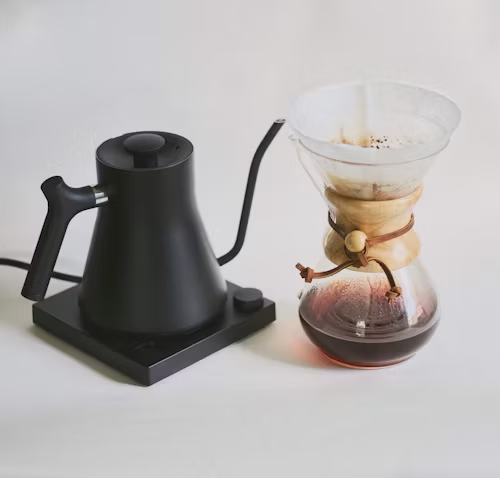Exploring the Rise of Local Clothing Boutique Marketplaces and Sustainable Shopping

In the age of mindful consumerism, more shoppers are turning towards sustainable and ethical ways to fill their wardrobes and homes. The emergence of local clothing boutique marketplaces, custom-made products, sustainable clothing, home gardening products, and fair trade marketplaces are becoming increasingly popular. This blog post will explore each of these trends, revealing why they are essential for the modern consumer and how they contribute to a more sustainable and ethical world.
The Appeal of Local Clothing Boutique Marketplaces
Local clothing boutiques offer a refreshing alternative to mass-market retailers by providing unique, often handcrafted items from local designers and artisans. These marketplaces not only bolster local economies but also promote individuality through one-of-a-kind pieces. Shopping at local clothing boutique marketplaces means contributing to the reduction of carbon footprints as these products typically require less transportation than those sold by global retailers.
- Support for Local Economies: Money spent in local boutiques stimulates the local economy by keeping money within the community.
- Unique Style Offerings: Boutique marketplaces offer unique clothing options, which are often not found in larger retail stores.
- Reduced Environmental Impact: Local sourcing of materials and manufacturing reduces transportation, which in turn decreases carbon emissions.
Custom-Made Products: A Touch of Personalization
Custom-made products are becoming a staple in consumer choices, especially in the fashion industry. These products offer a personalized experience that mass-produced items cannot match. Whether it's a tailor-made suit or a custom-designed dress, these items ensure a perfect fit and reflect the personal style of the wearer. Additionally, custom-made often means better quality due to the attention to detail and craftsmanship involved.
- Perfect Fit: Custom-made clothing is tailored to your specific measurements, ensuring a better fit than off-the-rack options.
- Personal Style Expression: Customization allows individuals to express their style and stand out from the crowd.
- Quality and Durability: Custom-made products are typically crafted with higher quality materials and techniques.
Sustainable Clothing: Fashion with a Conscience
Sustainable clothing refers to garments made from eco-friendly resources, such as recycled materials and organic cotton. It also involves ethical practices that support fair labor conditions. By choosing sustainable clothing, consumers can enjoy fashion in a way that also protects the planet.
- Eco-friendly Materials: Sustainable clothing uses materials that are better for the environment, such as organic cotton, bamboo, and recycled polyester.
- Fair Labor Practices: Many sustainable fashion brands are committed to ethical labor practices, ensuring that their workers are paid fair wages and work in safe conditions.
- Reducing Waste: Sustainable brands often follow principles of circular fashion, which aims to minimize waste and promote recycling of materials.
Home Gardening Products: Cultivating a Greener Home
Home gardening has surged in popularity as people seek to enhance their living spaces with greenery while also contributing to sustainability. Home gardening products range from seeds and planters to organic soils and eco-friendly tools. Engaging in home gardening not only beautifies your home environment but also promotes a sustainable lifestyle by reducing dependency on store-bought produce and decreasing food miles.
- Enhanced Home Aesthetics: Adding plants to your home can greatly improve its aesthetics and create a more inviting environment.
- Food Security: Growing your own food can provide security, knowing you have access to fresh produce right in your backyard or balcony.
- Eco-friendly Living: Home gardening encourages a reduction in food transportation and packaging, which are major contributors to environmental degradation.
Fair Trade Marketplace: Ensuring Equity in Trade
Fair trade marketplaces are dedicated to ensuring that producers in developing countries achieve better trading conditions. By supporting fair trade products, consumers play a role in helping these communities achieve sustainable and equitable trade relationships. Products in these marketplaces range from coffee and chocolate to clothing and home decor, all produced under stringent fair trade standards.
- Support for Marginalized Producers: Fair trade practices ensure that small-scale producers can compete fairly in the global market.
- Community Development: Fair trade premiums are often invested back into the community for education, health, and social projects.
- Consumer Assurance: Buying fair trade certified products assures consumers that the items were produced ethically and sustainably.
In conclusion, embracing local clothing boutique marketplaces, investing in custom-made products, choosing sustainable clothing, engaging in home gardening, and supporting fair trade marketplaces are all practices that promote a healthier planet and a more equitable society. As consumers, making mindful choices about where and how we shop can lead to significant positive impacts not only in our immediate community but also globally. Let's continue to support these positive trends and make sustainability and ethics a part of our daily lives.




